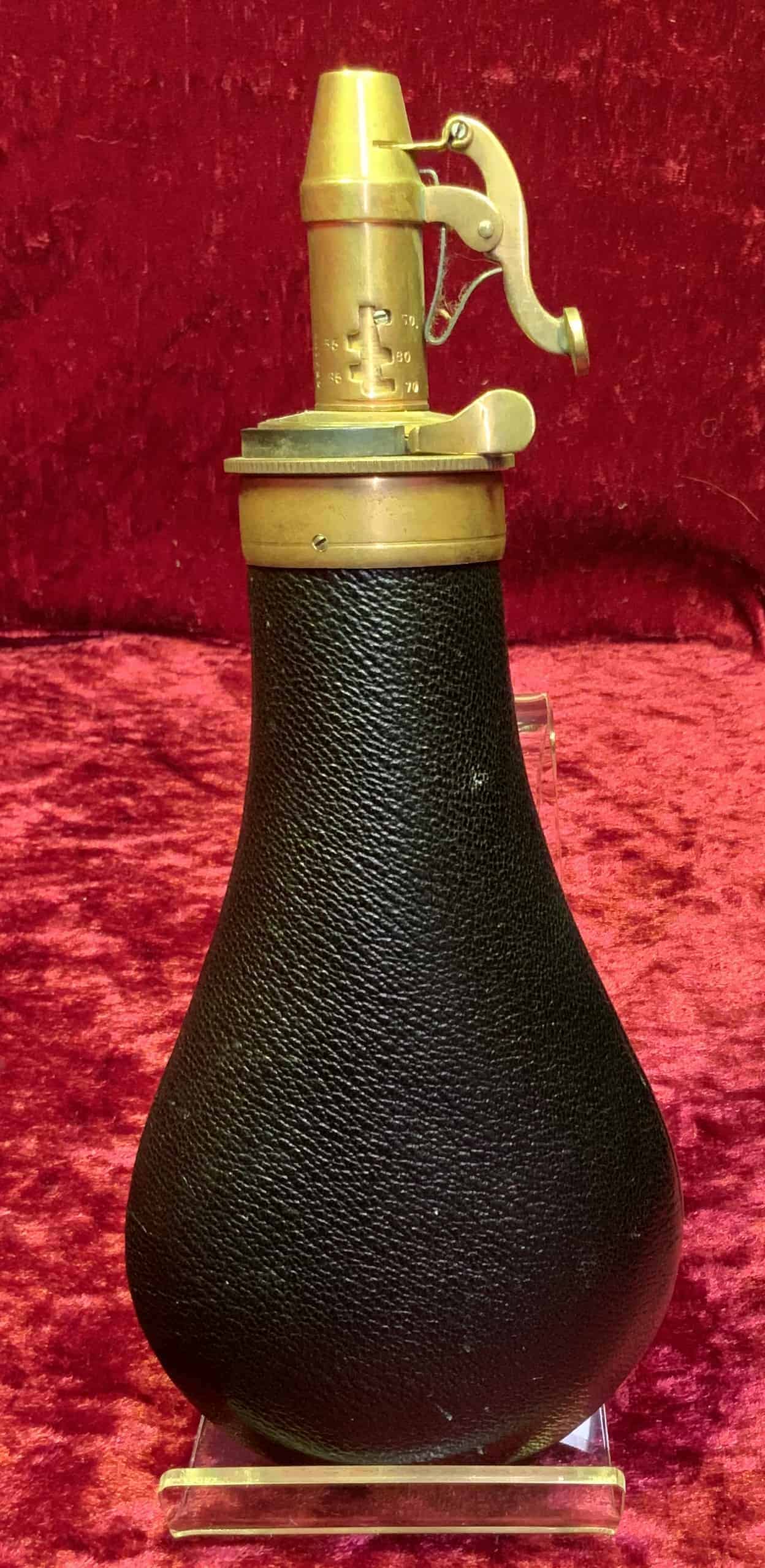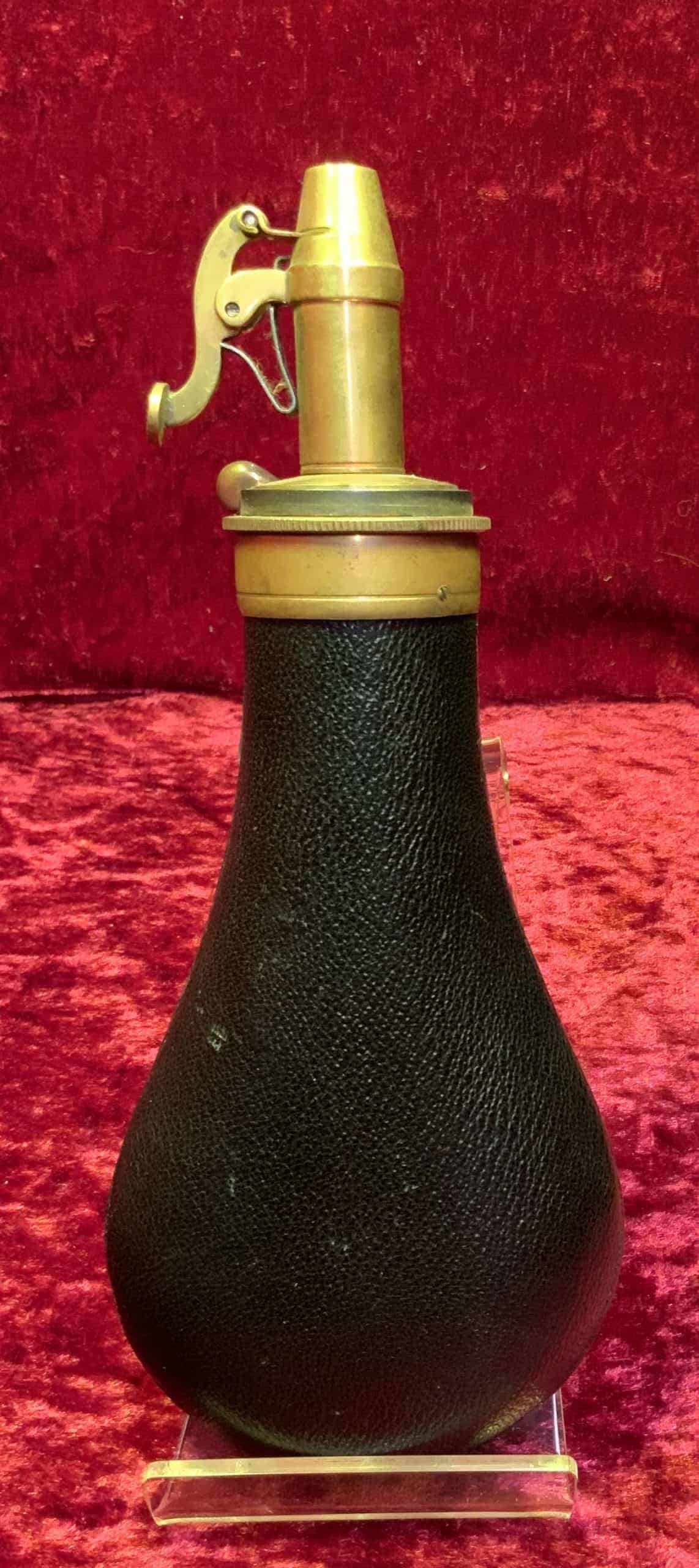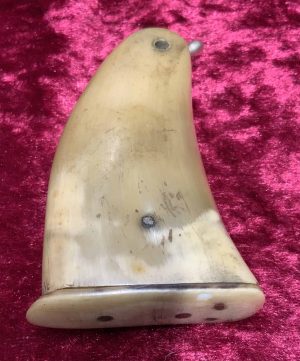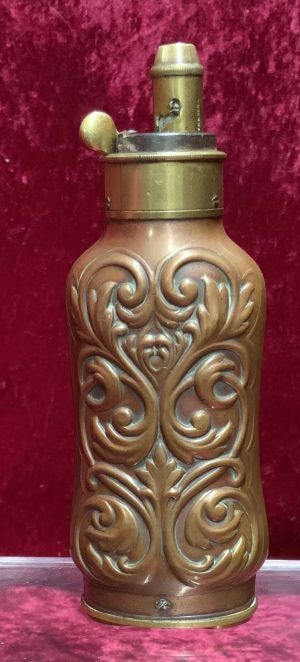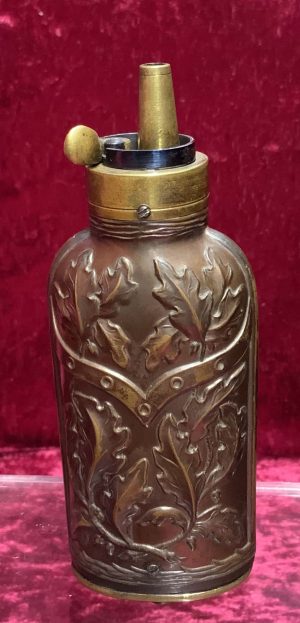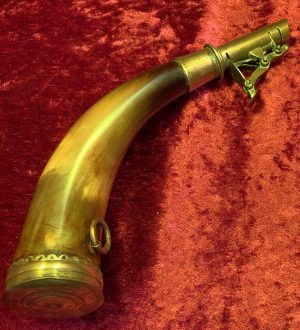Description
Parker Hale Rifle Flask
These were produced by Parker Hale in the 1960’s & 1970’s using the original James Dixon tooling. In the James Dixon catalogue of 1883 they are shown for sale at the princely sum of 90 shillings. These flasks are in good condition and in full working order.
Alfred Gray Parker founded a rifle manufacturing company in 1890. In 1910, he invited his nephew, Alfred Thomas Corbyn Hale, to become a partner in the limited liability company, with the shares being taken up by members of both the Parker and Hale families. A first catalogue was issued of arms and shooting accessories and, though limited in its range, clearly showed the company’s growing trend for the development of accessories.
By 1914 the company’s small manufacturing plant was well established and the Ministry of Munitions ordered training equipment from Parker-Hale. The “Parkerifling” process, coupled with the Hiscock-Parker magazine, enabled service rifles to be converted to .22 Long Rifle (.22 LR) for use as training rifles, and demand was such that the Parker-Hale factory was soon working to full capacity.
In 1924, Hale’s son, Arthur, joined the business, and in 1926 a family record was set up when Hale and his two eldest sons took part in the “King’s Prize” at Bisley. This event was eclipsed two years later when Arthur Hale succeeded in winning the coveted prize itself. He was appointed Director of the Company in 1928.
With the outbreak of the Second World War, the available resources of the gun trade had been mobilised to recondition a reserve of Pattern 1914 Enfield rifles, and in 1940 the Parker-Hale Arms Company was founded. Additional premises were acquired “for the duration” of the war and, under the management of Arthur Hale, a large reconditioning programme was rapidly carried through. A wide range of additional war contract work followed, principally with the manufacture of .30-06 Springfield and .303 British drill cartridges in large quantities.
After the close of hostilities, with a fall in production contracts and no permanent premises, the company had little choice but to invest in a small factory unit, erected under the Government’s emergency programme to re-house bombed-out manufacturers. Meanwhile, the Parker-Hale Arms Company was transferred to the Birmingham Proof House, where it continued with the reconditioning of .22 LR weapons for junior training organisations. The company ceased to exist upon completion of the contracts.
The immediate post-war years can best be described as a period of frustrated opportunity, since overseas markets were opened but materials of all sorts were in short supply. Nevertheless, by 1948 business abroad far exceeded the home trade.
Positioned alongside the BSA factory sportsground and Sparkbrook, from which the local area gets its name, the Parker-Hale factory headquarter building echoes the traditions of the Birmingham gun making industry, since it occupies the very site that the Proof House located their testing range.
Business at Parker-Hale remained relatively stable throughout the 1960s and into the 1980s, with sales of target and sporting rifles, handguns, shotguns and ammunition sitting comfortably alongside the company’s comprehensive range of rifle scopes, knives, gun care accessories and cleaning kits.
The company received a temporary setback in 1985 when the Chairman and Managing Director, John le Breton, who had been instrumental in consolidating the company’s success in world markets, retired from the board. The founder’s grandson, Roger Hale, then took over as Managing Director, and proved an influential figure in successfully re-positioning the company in what was to prove a constantly changing industry.
Lacking the investment necessary to enable the company to compete effectively in newly emerging markets, Parker-Hale was eventually sold to the Midlands engineering group, Modular Industries Ltd. In 1992 it was purchased by Navy Arms and spun off as Gibbs Rifle Company, Inc.
Click here for more Rifle Flasks
